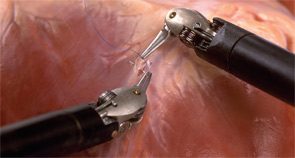The time for otolaryngologists to adopt electronic health records (EHRs) is now, practice management and information technology experts said at a session at the 2010 Annual Meeting of the American Academy of Otolaryngology-Head and Neck Surgery, held here Sept. 26-29.

Your Practice, Your Brand: Top 3 marketing strategies
It’s a common challenge: In a tough economy, do you spend to increase patient revenue or save to keep your practice afloat?
A Better Way to Implement EMRs: Why one-size-fits-all won’t work
I have been a strong advocate of electronic medical records (EMRs) for almost a decade. In fact, I used the phrases “It is the silver bullet for health care reform infrastructure” and “It is the cornerstone for health care reform infrastructure” to describe EMR plans when President Obama was campaigning. However, technology, like fire, can warm your house or burn it down, cook your food or kill you. Likewise, the wrong EMR will escalate inefficiency and raise health care costs. The wrong mandates or the wrong incentives have the potential to paralyze the day-to-day practice of medicine.

Digital Dilemma: Physicians oppose EHR requirements
The federal government’s proposed rule establishing incentive payments for physicians who “meaningfully use” electronic health records (EHRs) is too onerous and would discourage physicians from participating, some otolaryngologists say.

Scarless Surgery: The benefits and drawbacks of robotic thryroidectomy
Using robotic arms, surgeons can now remove the thyroid gland through an incision in the axilla, or armpit, thereby avoiding the large scar on the front of the neck caused by traditional thyroid surgery. The procedure offers no other benefits over the traditional approach developed a century ago by Emil Theodor Kocher, MD, according to head and neck surgeons who perform the robotic surgery. In fact, it takes longer to recover from the robotic surgery, they say, with some patients complaining of chest numbness for months afterwards.

Digital Efficiency: Panel discusses the inevitability of EMRs
Electronic medical records (EMRs) are costly and require significant staff time to implement but have the potential to bring huge benefits to patients and doctors alike, said speakers at the Triological Society’s Combined Sections Meeting held here Feb. 4-7.

The Future of Genomics Is Now: Dr. Thomas C. Spelsberg discusses the clinical implications
The genome project sequenced all three billion base pairs of human DNA, revealing the instructions cells need to build all the proteins in the body. But that was just a warm-up, according to Thomas C. Spelsberg, PhD, of the Mayo Clinic in Rochester, Minn.

HIPAA Expansion: Ensure your practice meets the law’s new provisions
On Feb. 17, 2009, President Obama signed into law the American Recovery and Reinvestment Act of 2009 (commonly referred to as ARRA or the Stimulus Bill) which includes the Health Information Technology for Economic and Clinical Health (HITECH) Act. The HITECH Act includes significant changes to the Health Insurance Portability and Accountability Act of 1996 (HIPAA) that affect otolaryngologists and other health care providers, as well as those who process or work with health care information. Below is a summary of how these new provisions, many of which go into effect this Feb. 17, will affect your practice.

Product Watch
Each month, Product Watch offers readers the latest information on new and innovative products for otolaryngologists-head and neck surgeons.
Hearing Aid Update
Hearing aids-external electronic devices used to help individuals with hearing loss-traditionally consist of a microphone, an analog-to-digital converter, a digital signal processor, a digital-to-analog converter, and a receiver that delivers an acoustic signal into the external auditory canal. In 2008, 97% of all hearing aids sold used digital processing. Catherine V. Palmer, PhD, provides a review of current digital hearing aids.
- « Previous Page
- 1
- …
- 5
- 6
- 7
- 8
- 9
- …
- 13
- Next Page »
